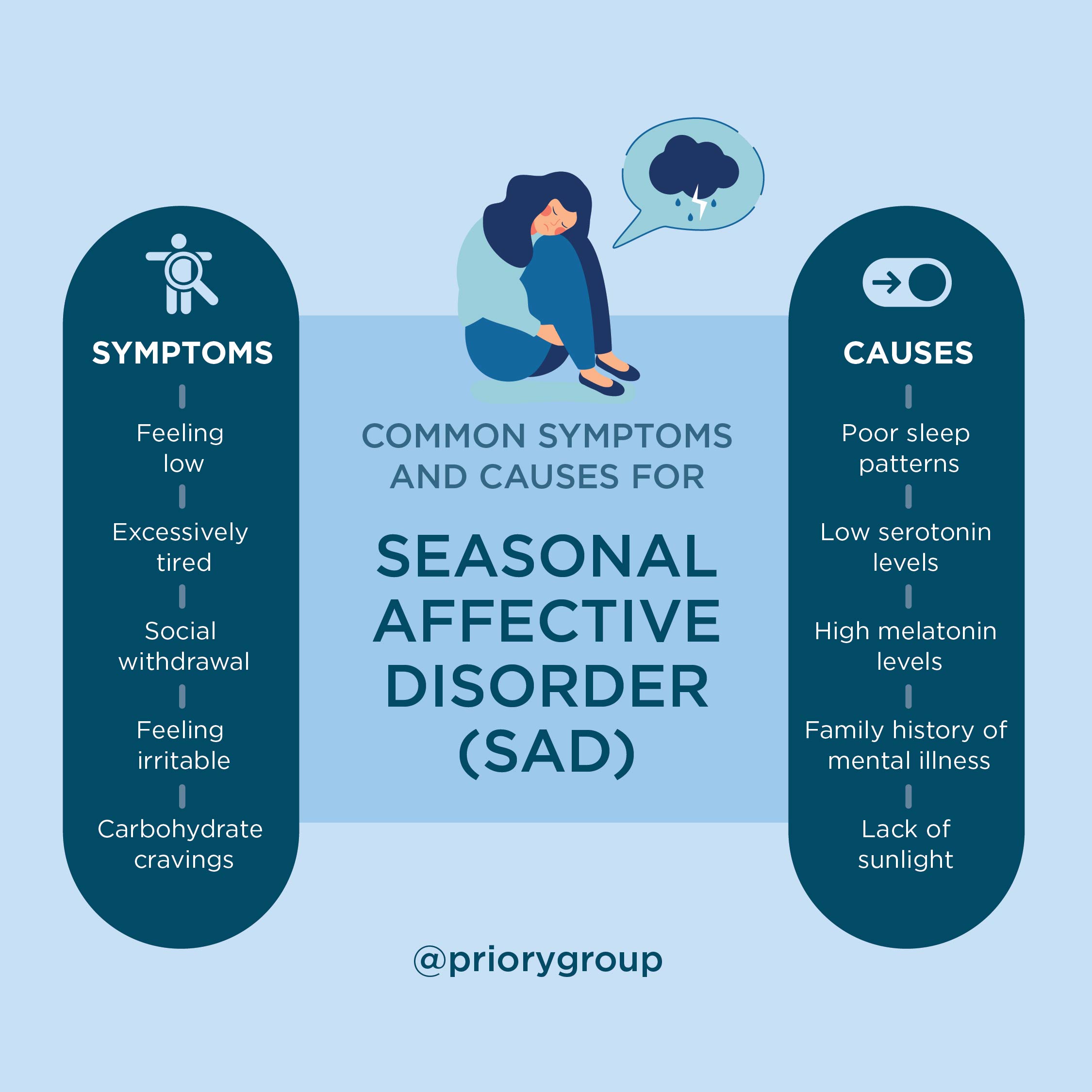How to cope with seasonal affective disorder (SAD)
If you're struggling with SAD, here are some ways you can manage your symptoms and cope with the disorder.
If you're struggling with SAD, here are some ways you can manage your symptoms and cope with the disorder.



Seasonal affective disorder (SAD), sometimes known as ‘winter depression’, is a type of depression and formally recognised mental health condition.
In the UK, SAD is relatively common and can affect both adults and children. NHS inform estimates around 2 million people a year are affected by SAD in the UK, and around 12 million people across Europe suffer too.
Seasonal changes have a direct impact on our mood, largely due to the interplay of light and our internal body clocks. The shifting seasons, with their variations in light and temperature, play an important role in our emotional state. The warmth and light of spring can elevate our spirits, while the shorter, colder days of winter may lead to us feeling down and depressed.
SAD can affect different people for different amounts of time. Typically, people suffering from SAD will do so during winter as these months are when people are exposed to less natural daylight. As spring comes around and natural light increases, the symptoms of SAD often start to ease. The symptoms of SAD can return each winter and continue until spring.
Some symptoms you may experience in the winter months include:

For people with mild symptoms of SAD, working in more brightly-lit areas and keeping blinds wide open during the day can ease symptoms. Making time for exercise outdoors such as cycling to work or regular walks can also be beneficial.
Read Dr Bijlani's comments on SAD here.
If the symptoms you're experiencing sound like seasonal depression, you can bring in one or two tweaks to your daily routine to help you deal with your symptoms and continue to enjoy your life as normally as possible.
SAD can affect your mood, which might make you not feel like doing some of the below. So remember, only do these if you feel well enough to.
Tips for coping with SAD include:
When you're at work or at home during the day, try and sit close to a window and make your environment as naturally bright as possible. If you can, head outside for a break, and think about using light bulbs that mimic natural daylight.
If you’re unable to get much natural light, using a light box as a form of light therapy can also help with SAD. Light boxes are a simple yet effective treatment that can be used when autumn starts and throughout the winter months.
As well as getting your natural light, going outdoors, being active and eating foods that are rich in a variety of vitamins is a winning combination to help to ward off the symptoms of depression. Exercising produces endorphins in the brain (feelings of happiness), so try to take a walk at lunchtime, play a sport with friends - be active in a way you enjoy. From a leisurely 10-minute stroll to a 30-minute engaged workout, there are plenty of benefits of exercise on mental health.
It can be very tempting to sit indoors and get cosy for the weekend, but planning an evening or afternoon out with friends or relatives can be a really good way to give structure to your day and avoid loneliness and negative thoughts or feelings.
The working week can take its toll, especially at the time of year when SAD is prevalent, so having a lie-in may seem like a great idea. But during the autumn and winter months, staying in bed too long will limit your exposure to light, and your eyes need to take in light to withhold serotonin (a chemical in the brain which ‘lifts’ your mood).
Don’t keep saying “I’m fine” if you’re experiencing symptoms regularly and they’re starting to have a negative effect on your life. Speak to your GP for further help and advice. Remember, recovery from this condition is absolutely possible if you seek help.
It's important to know that you don't have to struggle with SAD alone and that professional depression support is available. Outpatient therapy, consisting of flexible one-to-one therapy and group therapy, is a common treatment method for SAD.
Inpatient treatment, where you become a resident at a treatment facility, might also be appropriate, depending on your symptoms. As a resident, you would receive round-the-clock support for your SAD.
Contact your GP or speak to one of our highly qualified mental health professionals who are ready to talk through your situation and help you begin your recovery journey.
